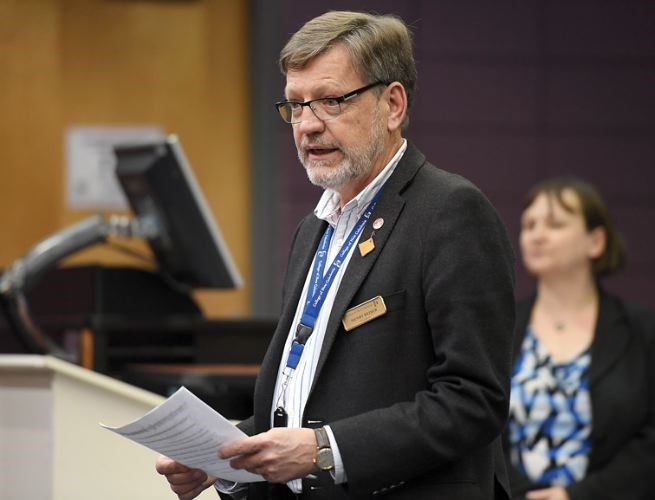Despite a 36 per cent drop in student enrolment at their Burns Lake campus, the College of New Caledonia is promoting instruction of classes via video conferencing as a method of maintaining popular course offerings.
The video conferencing technology, known as digital delivery instruction, was the subject of a presentation delivered by CNC president Henry Reiser to the Village of Burns Lake council on Tuesday night.
According to CNC, student numberst at the Lakes District campus have dropped from 1,076 during the 2014/15 academic year to 686 in 2016/17. During that time, staff at Lakes District dropped from 67 to 33.
In December, the college postponed a practical nursing program offering at Lakes District to September of 2018. The program had been set to begin this month, but only two prospective students had obtained the necessary prerequisites to begin the program.
"For a community like Burns Lake, where we have seen a real demographic decline in the age groups of students that would typically go to our college in the community, we want to provide them with at least the same opportunities as our other campuses," said Alyson Gourley-Cramer, executive director of communications for the college.
In response, the college has introduced courses offered with the assistance of digital delivery instruction. During the 2015/16 academic year, the college offered seven courses using the video conferencing technology. The following year, 23 courses were offered using the technology.
"It really offers much more opportunities for students in their communities, and lets them stay at home and live at home," Gourley-Cramer said.
Gourley-Cramer said rural-urban migration and shrinking numbers of millenials in the north have partly accounted for the drop in Burns Lake enrolment over the last two years. But the reintroduction of free, government-funded high school upgrading courses has already resulted in an increase in enrolment during the current schoolyear.
The previous provincial government under then-premier Christy Clark defunded high-school upgrading courses in 2015. The resulting hike in tuition fees for this program, which had previously been offered for free, helped lower enrolment rates at many B.C. colleges.

.png;w=120;h=80;mode=crop)

